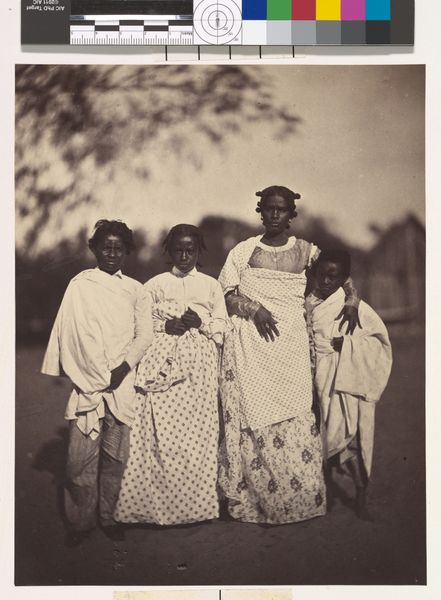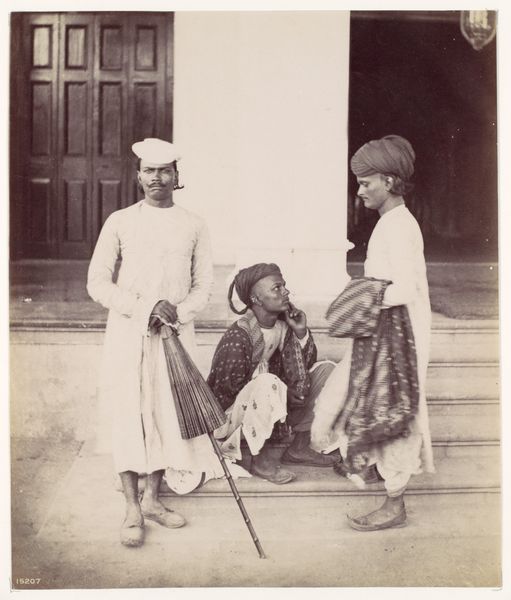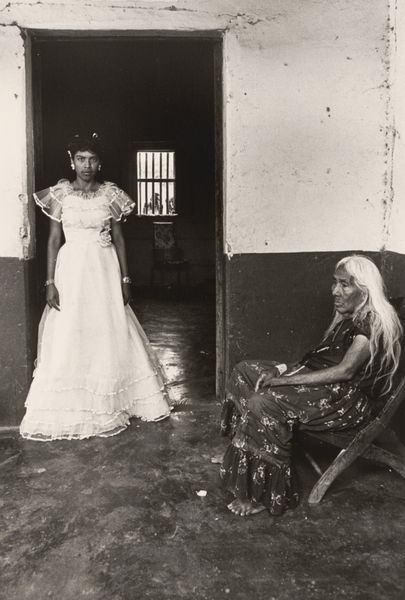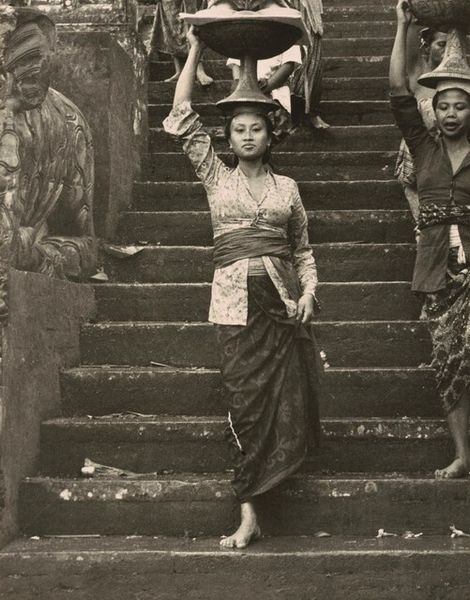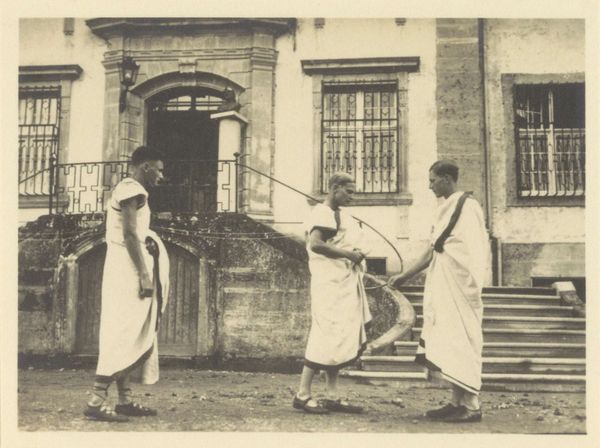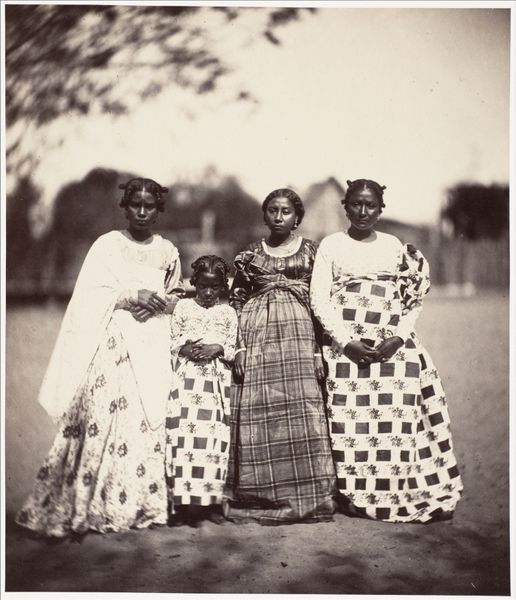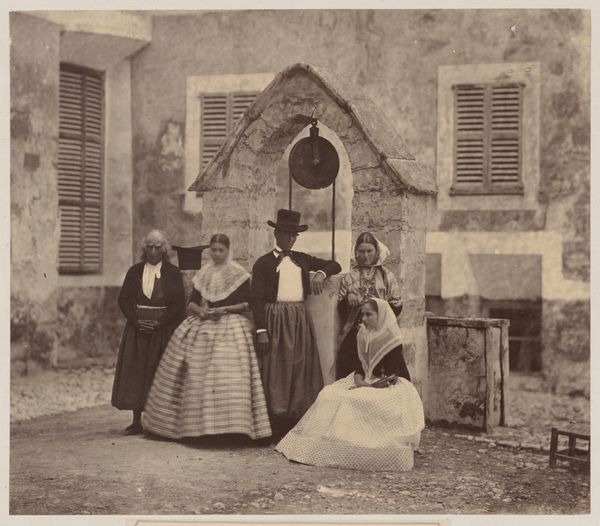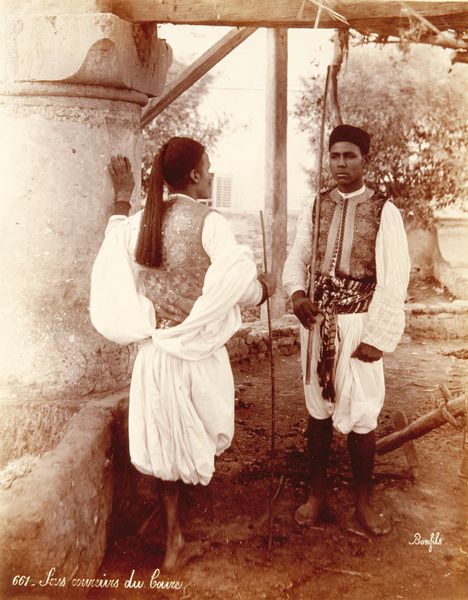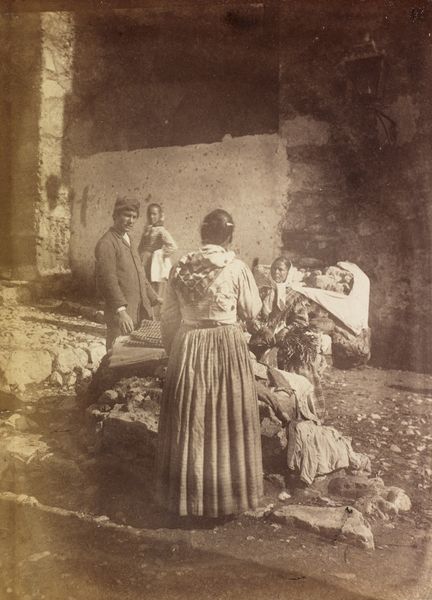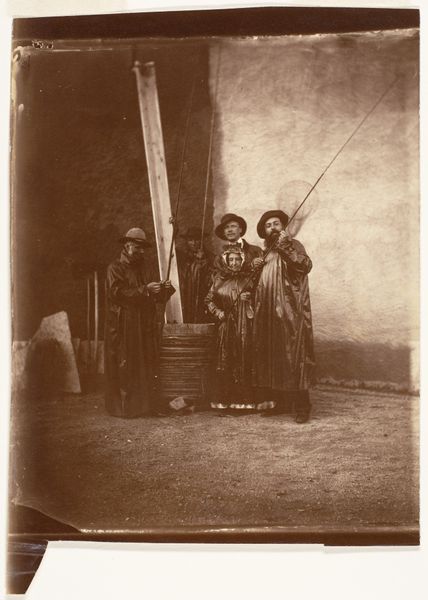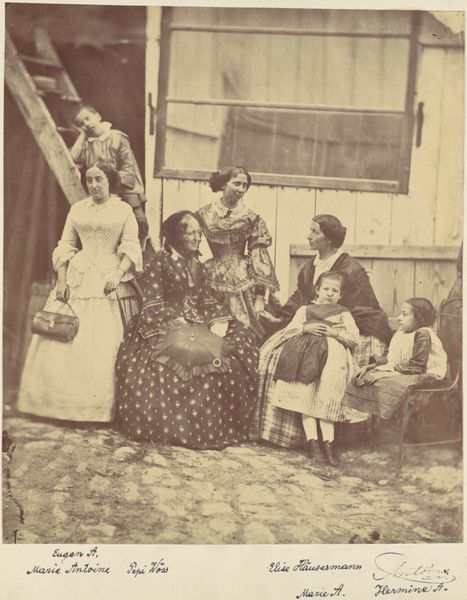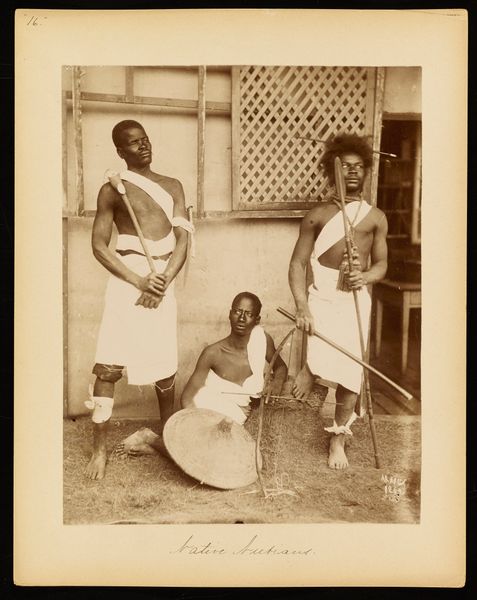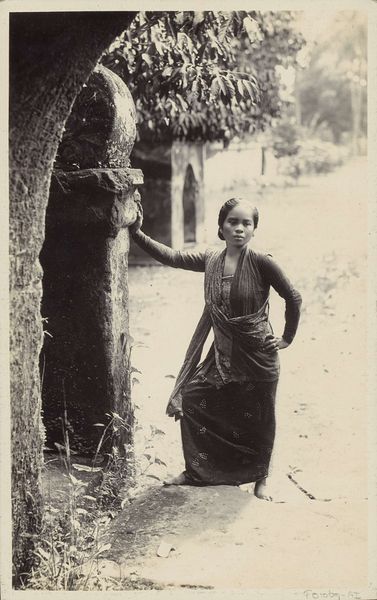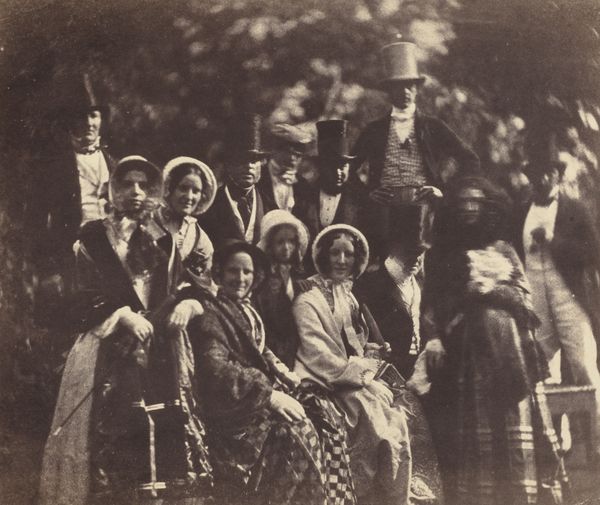
photography, gelatin-silver-print
#
portrait
#
african-art
#
black and white format
#
photography
#
historical photography
#
black and white
#
gelatin-silver-print
#
genre-painting
#
history-painting
Dimensions: image: 19.7 x 15.2 cm (7 3/4 x 6 in.) sheet: 42.6 x 29.9 cm (16 3/4 x 11 3/4 in.)
Copyright: National Gallery of Art: CC0 1.0
Editor: This gelatin silver print, "Les Femmes Malgaches" by Désiré Charnay, was created in 1863. The stark contrast between the figures and the background creates an arresting composition. I'm curious about your interpretation of this work, considering its visual elements. What do you see in this piece? Curator: The tonal range, varying from deep blacks to faded grays, constructs the image's architecture. Note how the subjects are placed against the linearity of the planks that constitute the structure in the background. Do you observe how this emphasizes the volume and geometry inherent in the figures? The contrast articulates the details of form. Editor: I do now! The texture of the wood seems to create a stage almost for the figures. What can you tell me about the way they are placed in this "stage?" Curator: The spatial organization, specifically the relationships between figures, is important. There’s a central figure with the others flanking. The lines and forms converge, leading your eye throughout the composition. It's almost sculptural in its presentation of mass. I see it less as stage and more as a cohesive arrangement. The light creates shadows on the faces. Notice that the directionality focuses one's view on the subject’s gaze and invites introspection. Editor: So, beyond representation, you are more interested in the composition's internal mechanics? Curator: Precisely. This emphasis, in turn, helps the viewer to more freely contemplate the interplay between light, shadow, and texture without prescriptive narrative burdens. Editor: I’m struck by how a seemingly straightforward portrait can offer such richness through a formal lens. Curator: Yes, paying close attention to formal elements can unveil layers of intention. I now realize the power and depth in understanding historical photography as simply visual presentation and arrangement.
Comments
No comments
Be the first to comment and join the conversation on the ultimate creative platform.
